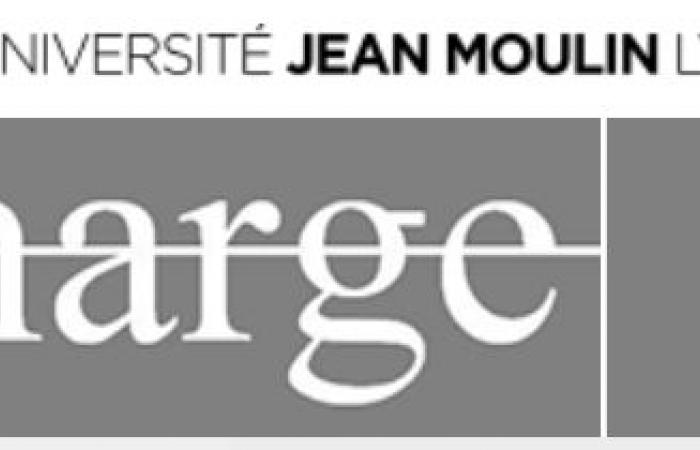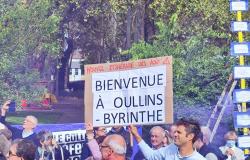
ORCO2C study day
Characterize the field of “post-colonial” studies.
9-10 avril 2025
Lyon (Hybrid)
We offer a day of studies on the global characterization of the field of post-colonial and de-colonial studies.
This day is part of a multidisciplinary project which aims to constitute a digital portal of resources to assemble the data (documents, publications, works) constituting this field. However, the first difficulty encountered concerns the characterization of the field of knowledge of these studies, its extent, its limits and the definition of the structuring concepts which constitute it.
Compared to other fields of study, the field of postcolonial studies is characterized by greater diversity and fluidity, as well as resistance to more traditional national interpretative models. This, because it is located at the crossroads of history, comparative literature and theoretical studies on literary creation, as well as sociology. As a result, it constitutes a space particularly suited to observing the circulation of concepts and therefore of knowledge, but at the same time makes the characterization of the common base of this work more complex. In this sense also, the field of post-colonial studies is innovative in all SHS through an internal experience of multidisciplinarity.
In this context, we would like to reflect more particularly here on the different points of view which bring this field of study into existence: we will be particularly attentive to the differences in disciplinary anchoring, geographical, historical, linguistic and cultural context. Indeed, unlike most other fields of study, this one is not accompanied by a body of knowledge established and cataloged in a consensual manner. It is also one of the challenges of this work to integrate this fact into a characterization of knowledge.
Our point of view would thus be the opposite of that which we usually encounter in knowledge organizations, where we seek first to represent the unity and stability of the field. Here, the field appears to be not very hierarchical but marked by complementary links and a plasticity that hardly appears elsewhere. We will discuss the relevance of the notion of rhizome to characterize this field.
This situation, and the globality (Glissant) associated with it, constitutes a starting point for thinking in new ways about the notions of concepts, inheritance, borrowing, but also for understanding the tensions and articulations of a scientific field. Therefore, it is important to take into account the fact that actors in the field express the way in which they characterize their own field according to their own point of view.
We can thus structure the work around three sets of questions:
– Borrowings, inheritances, adaptations, translations
– Spaces, objects, positions,
– Unifying concepts, influences, resistance and rupture.
Therefore, we will propose several priority themes:
– Roles and limits of dictionaries in the field.
– Relevance and limits of the literary material.
– Place of artistic creation in the research process.
We encourage communications with a reflexive aim that favor the multiplicity of points of view (theoretical anchors, methodologies, research materials, geographical areas) in order to present how this diversity can be considered as a working framework. This questioning of actors about their own practices and their environment includes both the objects studied, the references cited, and analyzes the epistemological consequences of such an approach.
We will also be attentive to communications characterizing how controversies emerge, what they are about, where and how they take place and how they are argued.
Questions of translation, circulation, use and reinterpretation of works and concepts have both an explanatory role in certain phenomena but also in absences and ruptures. We will be particularly attentive to studies dealing with these circulations of ideas, works and concepts, obviously associated with precise historical and generational contexts.
Finally, questions of linguistic variations and their consequences on the hermeneutics of concepts both reveal the structuring of the field and explain divergences not only between researchers but also between communities, already considered linguistically.
These questions will serve to guide the SHS and Information Sciences approaches for the characterization and structuring of knowledge, which itself will allow the development of a representation of knowledge and objects in the field in order to build a portal unified and structured access to domain resources.
Beyond our interest in the organization of knowledge and the exchange of knowledge facilitated by electronic portals, we are also interested in the way in which digital tools intervene in the processes of research but also of creation.
All of this work is intended for publication in an electronic journal meeting all the criteria of scientificity (double-blind evaluation).
—
Indicative bibliography
Cahen, Michel; Braga, Ruy (ed..). 2018. Beyond the (post)-colonial, São Paulo: Alameda.
Hiddleston, Jane. 2021. Postcolonialism, Petrópolis, Vozes, 2021.
Quijano, Aníbal. 1992. Coloniality and Modernity/Rationality. Indigenous Peru, 13 (29): 11-20.
Maldonado-Torres, N. 2005. Thinking Through the Decolonial Turn: Post-Continental Interventions in Theory, Philosophy, and Critique – An Introduction.Transmodernity: Journal of Peripheral Cultural Productions of the Luso-Hispanic World, (1)2: 1-15
Tlostanova, M. and Mignolo, W. 2012. Learning to Unlearn: Decolonial Reflections from Eurasia and the Americas. Ohio: Ohio State University Press.
Grosfoguel, R. 2007. The Epistemic Decolonial Turn: Beyond Political-Economy Paradigms. Cultural Studies. 21 (2-3): 211 – 223.
Dey,S. (Ed.).2018. Different Spaces, Different Voices: A Rendezvous with Decoloniality. Mumbai: Becomeshakespeare.com
Huggan, Grahan. 2001. The Postcolonial exotic: marketing the margins. London: Routledge.
—
Scientific committee
Natalia GUERELLUS, MARGE, Jean Moulin University Lyon3
Pauline FRANCHINI, IHRIM, Jean Moulin University Lyon3
Maria-Benedita BASTO, CRIMIC, Sorbonne, Paris
Florence LABAUNE-DEMEULE, IETT, Jean Moulin University Lyon3
Hugo AZERAD, Cambridge University
Charles FORSDICK, Cambridge University
Mabrouka EL-HACHANI, ELICO, Jean Moulin University Lyon3
Corinne MENCE-CASTER, CLEA, Sorbonne, Paris
Jean-Pierre FEWOU-NGOULOURE, LERASS, University of Toulouse 3
Amel FRAISSE, GERICCO, University of Lille
Angèle STALDER, ELICO, Jean Moulin University Lyon3
Caroline WINTERGERST, MAGELLAN, Jean Moulin University Lyon3
Omar LAROUK, ELICO, ENSSIB
François VIGNALE, 3.LAM, Le Mans University
Erika FÍLÖP, PLH, Université Toulouse 2.
Guilaine TALENS, MAGELLAN, Jean Moulin University Lyon3
—
Length of contributions: 4500 characters max., bibliography included
Published: September 30
Collection of contributions: deadline December 15
Answer: January 30.





